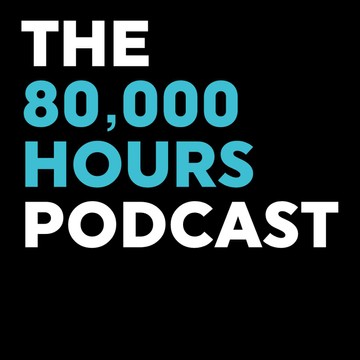

Spencer Greenberg
Mathematician, entrepreneur, and social scientist. Founder of ClearerThinking.org and host of the Clear Thinking podcast.
Top 10 podcasts with Spencer Greenberg
Ranked by the Snipd community

1,067 snips
Aug 9, 2025 • 1h 29min
#978 - Spencer Greenberg - How Much Does IQ Matter?
Spencer Greenberg, a mathematician and social scientist, discusses the nuanced world of IQ and its implications. He delves into how IQ has historically been misused and the critical role of personality traits in success. Spencer also tackles the paradox of intelligence and happiness, revealing that a high IQ doesn't guarantee fulfillment. The conversation explores modern challenges like imposter syndrome and misconceptions about personality disorders, creating a rich dialogue on intelligence, self-perception, and societal expectations.

445 snips
Nov 11, 2023 • 1h 22min
#705 - Spencer Greenberg - The 5 Most Effective Techniques To Hack Your Habits
Spencer Greenberg, a mathematician and founder of ClearerThinking.org, reveals powerful strategies for habit formation. He discusses insights from his study involving 450 participants, showcasing techniques like mini habits and the WHOOP method. The conversation dives into the effectiveness of personality tests, comparing Myers-Briggs with the Big Five model. Spencer emphasizes the importance of intrinsic values for a meaningful life and shares the role of intuition in decision-making, blending practical advice with deep philosophical insights.

55 snips
Mar 14, 2024 • 2h 37min
#183 – Spencer Greenberg on causation without correlation, money and happiness, lightgassing, hype vs value, and more
Spencer Greenberg, a serial entrepreneur and host of the Clearer Thinking podcast, dives into intriguing discussions about money and happiness, revealing the complexities of their relationship. He shares insights on recognizing toxic behaviors in relationships, emphasizing the importance of self-awareness. The conversation also touches on the balance between hype and genuine value in marketing, and explores the significance of personal guiding principles in decision-making. Finally, Spencer highlights the role of rationality in addressing societal challenges.

44 snips
Dec 14, 2020 • 1h 20min
195 - Clearer Thinking - Spencer Greenberg
In this episode we sit down with Spencer Greenberg to discuss how to be better critical thinkers using his FIRE method and other insights from his website, ClearerThinking.orgPatreon: http://patreon.com/youarenotsosmart Hosted by Simplecast, an AdsWizz company. See pcm.adswizz.com for information about our collection and use of personal data for advertising.

43 snips
Aug 8, 2023 • 1h 8min
How to Integrate Behavior Change with Your Values with Spencer Greenberg
Spencer Greenberg, an entrepreneur and mathematician dedicated to enhancing human well-being, shares insights on integrating behavior change with personal values. He emphasizes the importance of focusing on the process rather than just goals, discussing strategies for habit formation. The conversation delves into the complexities of conflicting values, self-reflection, and the significance of a balanced approach to decision-making. Listeners will learn to identify their core values, navigate personal conflicts, and implement effective behavior change frameworks.

40 snips
Mar 24, 2023 • 2h 38min
#147 – Spencer Greenberg on stopping valueless papers from getting into top journals
Spencer Greenberg, a social scientist and entrepreneur, dives into the flaws in social science research, revealing that nearly 40% of studies cannot be replicated. He discusses p-hacking, where researchers manipulate data for significant results, and the biases stemming from journals favoring positive outcomes. Greenberg also introduces the P-curve analysis technique to assess research integrity and explores the implications of flawed findings on policy-making and ethical research practices.

37 snips
Sep 10, 2025 • 52min
Episode 036: The Science of Clearer Thinking with Spencer Greenberg
Spencer Greenberg, an entrepreneur and mathematician who hosts the Clearer Thinking podcast, dives into the complexities of cognitive biases and their impact on decision-making. He reveals that mere awareness of these biases isn't sufficient to overcome them. Instead, he emphasizes evidence-based tools, such as pre-commitments and Bayesian thinking, to improve our choices. Spencer also discusses the balance between intuition and analysis in an AI-influenced world, offering practical strategies for clearer thinking and enhanced decision-making.

32 snips
Jan 13, 2021 • 2h 31min
Rob Wiblin on self-improvement and research ethics
Spencer Greenberg, creator of the Clearer Thinking Podcast, dives into a captivating discussion with Rob Wiblin. They explore whether self-improvement is effective, emphasizing the role of line managers in productivity. The conversation touches on the complexities of human values and the ethical concerns surrounding research practices. Rob critiques the harm caused by institutional review boards and shares insights on prediction markets and their failures. Their engaging dialogue challenges listeners to rethink traditional views on ethics and self-betterment.

23 snips
Aug 12, 2025 • 1h 4min
The beliefs so strong they bend reality around them (with Spencer Greenberg)
In this discussion, Spencer Greenberg, an entrepreneur and social scientist, delves into the intricacies of belief systems. He explains anchor beliefs—deeply rooted convictions that often resist change even in the face of new evidence. The conversation highlights tools for rational thinking, the psychological dynamics behind valuism, and effective methods for navigating disagreements. Spencer also emphasizes the importance of emotional awareness when challenging entrenched beliefs, making it clear that self-reflection and understanding are key to personal growth.

15 snips
Mar 29, 2024 • 21min
Highlights: #183 – Spencer Greenberg on causation without correlation, money and happiness, lightgassing, hype vs value, and more
Spencer Greenberg discusses causation without correlation, money and happiness, hype vs value, and more. Topics include balancing hype and value for success, recognizing acclimated problems, exploring values in decision-making, and supporting individuals with false perceptions or delusions.


